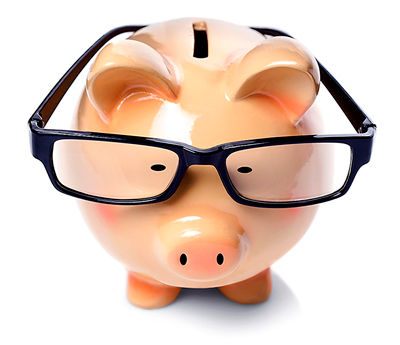This spring the novel coronavirus wreaked havoc on our lives and on the stock market. We wait to see the full extent of the damage, but one thing is sure: markets seem a whole lot scarier. If you’re new to investing, you might be asking yourself, “Is now an opportune time?” Bridget Casey, ’10 BSc, founder of Money After Graduation, a financial literacy resource for young professionals, offers some much-needed guidance during these times of uncertainty. She’s here with some dos and don’ts for newbies considering investing after a market crash.
1: Do invest in your emergency fund
There’s nothing like a pandemic to teach you the lesson of saving for a rainy day. Financial gurus suggest having between three and six months of your household income squirreled away for emergencies, not investing. “I’m now recommending having $10,000 saved up — at the very least,” Casey says. She’s also a fan of what she calls an “Emergency Fund of Stuff” — a three-month supply of household goods and toiletries, from coffee to contact lenses. This stockpile can help reduce your stress and keep more money in your pocket during leaner times (like, say, weathering a pandemic).
2: Don’t let volatile markets scare you
That’s right, according to Casey there hasn’t been a better time to invest in recent history. After a historic 10-year run of growth, the market was overvalued and it was just a matter of time until the bubble burst, she says. “Now, with securities more fairly valued, it’s like buying stocks on sale.”
3: Do contribute regularly
The trick to investing in a volatile market is to proceed with caution and stick to regular contributions, Casey says. She suggests signing up for a robo-adviser — an online investment management system — and starting to contribute monthly. Robo-advisers automatically invest your money according to your financial goals and a set of complex algorithms. As always, and especially during times of volatility, the most important part of investing is consistency. “The habit is more important than the amount,” she says.
4: Don’t borrow to invest
Even though the low interest rates may tempt you, Casey advises against borrowing money to invest. “We don’t know how long the public health measures will last and what the economic fallout will be. There are just too many unknowns.”
5: Do re-evaluate your risk tolerance
Most people assume they’re much more risk tolerant than they actually are, says Casey. “This crash is a reality check for investors who had misjudged their risk tolerance.” So, take this time to find out how much cash you need to get by. This will help determine how much risk you’re willing to take on in the future.
6: Don’t wait to pay off debt to invest
Don’t delay, invest today. Start by putting at least 15 per cent of your net income toward your debt repayment and 10 per cent toward saving and investing, Casey says. And, if you haven’t already, open a TFSA and an RRSP to tax-shelter your investments.
Remember: paying off debt will always be easier than saving because debt is an obligation, she adds. “One of the most important things to keep in mind for new investors is to consider money invested as money spent.”

We at New Trail welcome your comments. Robust debate and criticism are encouraged, provided it is respectful. We reserve the right to reject comments, images or links that attack ethnicity, nationality, religion, gender or sexual orientation; that include offensive language, threats, spam; are fraudulent or defamatory; infringe on copyright or trademarks; and that just generally aren’t very nice. Discussion is monitored and violation of these guidelines will result in comments being disabled.